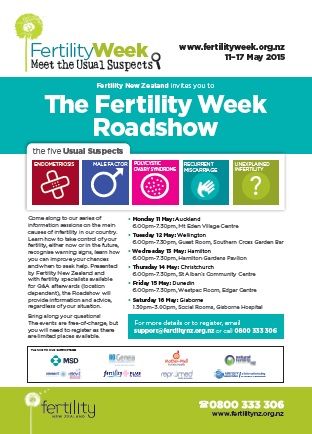News
Recurrent Miscarriage
Symptoms
Most miscarriages are diagnosed once a woman reports to her doctor with vaginal bleeding and cramping lower abdominal pain. These symptoms are caused by the separation of the degenerating placental tissue from the uterine wall and the contractions of the uterus to expel the products of conception through the cervix. The alternative presentation is the finding of a nonviable pregnancy on ultrasound, which had been performed to check the gestation, or when there are reasons for concern, for example the loss of pregnancy symptoms or the uterus being smaller than expected for the calculated time of gestation.
Causal Factors
With the frequent occurrence of miscarriage, theories on potential causes abound and a large number of studies have been performed searching for a cause, but it would be naive to believe there to be one or only a few. Aetiology of RPL includes:
Genetic factors for example, structural or numerical chromosomal abnormalities such as chromosomal translocations. Found in 3-5% of couples with RPL compared with 0.7% of general population.
Anatomical factors congenital uterine anomalies such as a septate uterus, diethylstilbestrol-linked anomalies or acquired uterine anomalies such as intrauterine adhesions, fibroids, polyps, incompetent cervix are associated with RPL.
Endocrinological factors uncontrolled diabetes mellitus or thyroid disease, possible association with polycystic ovarian syndrome or Hyperprolactinaemia
Immunological disorders an abnormal maternal immunological adaptation to pregnancy has been proposed as a cause of miscarriage for over 50 years. This is a controversial area especially regarding the natural killer cells test which has yet to be fully understood or to consistently and reliably diagnose such a problem. The Antiphospholipid syndrome is the only proven autoimmune disease associated with RPL.
Thrombophilias There is a large and contradictory literature on the association between inherited thrombophilias (genetic tendency to form blood clots) and RPL. However, there is evidence to suggest such conditions such as factor V Leiden and other blood clotting conditions could play a part.
Lifestyle factors Miscarriage is more common in women who are significantly under or overweight, women who smoke or drink large amounts of alcohol or caffeine. Advancing maternal and paternal age is also associated with increased rates of miscarriage. Various environmental factors have been implicated over the years, e.g. VDU screens, anaesthetic agents in theatre nurses, general pollution, air travel, saunas and Jacuzzis, sex, stress – none with proven scientific bases.
Unexplained in at least 50% of couples, no explanation or reason will be found for their recurrent pregnancy losses
Evaluation of RPL
This is an evolving and controversial area. If you have had three miscarriages in a row, tests will be offered to try and ascertain the cause. Testing is not usually offered after one or two early miscarriages, but you may be offered tests after two early miscarriages if you are in your late 30s or early 40s, or if it has taken you a long time to conceive. In general the following tests should be considered:
- Karyotypes of both parents +/- products of conception from miscarriage
- Assessment for uterine abnormalities with pelvic USS, HSG, sonohysterogram, MRI, laparoscopy or hysteroscopy
- Testing for the Antiphospholipid syndrome (anticardiolipin antibodies, lupus anticoagulant, B2GP1 antibodies – positive if levels significant on two or more occasions at least 12 weeks apart)
- Thyroid antibodies/TFT’s
- Ovarian reserve testing (basal FSH, antimullerian hormone, antral follicle count)
- +/- additional tests as indicated by history e.g. thrombophilia screen, prolactin, DNA sperm fragmentation
Unproven tests for RPL, but used by some practitioners:
- TORCH screen, routine vaginal/cervical swabs
- Tests for diagnosis of immune-based RPL e.g. HLA typing, peripheral blood NK cell levels, cytokine polymorphisms
- Endometrial biopsy
- ANA
- Screening for diabetes
- Progesterone assays
- Homocysteine levels
- MTHFR polymorphisms
Management of RPL
- Couples with RPL require empathy and understanding. Early pregnancy loss is an emotionally traumatic experience, similar to that associated with stillbirth or neonatal death. In addition, RPL is one of the most frustrating and difficult areas in reproductive medicine because the aetiology is often unknown and there are few evidence-based diagnostic and treatment strategies. Emotional support is important in caring for these couples, and may enhance therapeutic success.
- In just over half the couples no specific cause is found, so called "unexplained" RPL. In these couples, attention to lifestyle factors and early pregnancy support and monitoring through the first trimester of the next pregnancy is offered. The chance of a subsequent successful pregnancy in these couples is ~70-75%.
- Couples where an underlying cause for their RPL is found, are offered specific treatment to help improve their chances of a live birth in the future. For example, if a genetic abnormality is found, pregnancy chances may be improved with assisted reproductive techniques such as IVF with preimplantation genetic diagnosis or use of donor gametes. In patients with proven Antiphospholipid syndrome, live birth can be improved with the use of anticoagulation in a subsequent pregnancy. Some women with an anatomical abnormality may be offered surgical correction or if this is not possible, may consider a gestational carrier (surrogate). Despite lack of evidence for causation, many “immunological treatments” have been trialled but none have been shown to be effective and some may be harmful.
Contributed by Dr Karen Buckingham
Self help
Living a healthy lifestyle before you get pregnant improves your chances of having a successful pregnancy and a healthy baby. Preconception health care can be undertaken for the 3-4 months prior to conception. This can include the following:
- Aim to reduce the intake of processed and refined foods as these are often of poor nutritional value. A diet based on vegetables, legumes, fruit, whole grains, lean meat, poultry, fish and dairy foods is recommended
- Ensure that the supplementation of important nutrients essential to a healthy pregnancy are in place prior to conception i.e. folic acid, iodine, prenatal multi, omega 3 oils , vitamin D (if deficient)
- Stop smoking and taking any recreational drugs
- Reduce alcohol and caffeine
- It is important to ensure you get adequate rest and relaxation. Let go of all daily non-essential activities and concentrate on your own well-being first. A degree of stress in your life is inevitable, but how you deal with it is important
- It is best to be at a healthy weight when you become pregnant. Being overweight or underweight puts you at increased risk for problems during pregnancy. Healthy food choices and physical fitness, together, can help you reach or maintain a healthy weight
- Get your health and medications evaluated – have any medical conditions such as diabetes, epilepsy, obesity and high blood pressure treated and kept under control before becoming pregnant and throughout pregnancy
- If you have had two or more miscarriages, have a discussion with your GP about doing some medical investigations/tests
Self help information contributed by Loula George

